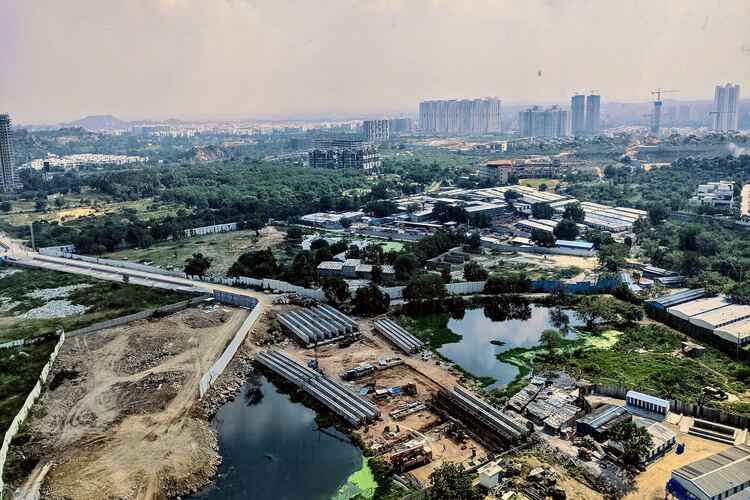
The government’s plan to overhaul the SEZ Act of 2005 through the Development of Enterprise and Service Hubs (DESH) Bill, introduced last year, has encountered significant obstacles, causing the legislation to remain in limbo. In an effort to address these challenges, the commerce department is poised to revise some of the initial proposals within the DESH Bill. Among these changes, the government is considering reintroducing the positive net foreign exchange (NFE) criterion, a primary requirement for SEZ units that was omitted in the original DESH Bill. Additionally, the earlier proposal to freeze concessional corporate tax rates until 2032 may also be removed.
These modifications have been long overdue, as the draft Bill faced resistance from the ministry of finance due to concerns over tax incentives. Furthermore, India’s SEZ scheme has not achieved the same success as its counterpart in China, where it played a pivotal role in the country’s economic growth. In China, SEZs contribute approximately 22% to the GDP, attract 45% of foreign direct investment (FDI), and account for 60% of exports. The current effort to enhance the DESH Bill aligns with the aspiration to level the playing field in India and emulate China’s success.
READ | West Asian conflict sends jitters through crisis-ridden global economy
What is the DESH Bill
Finance minister Nirmala Sitharaman announced the DESH Bill in the Union Budget in February 2022. The DESH Act is meant to replace the Special Economic Zones Act and allows states to participate in the development of enterprise and service hubs. The government seeks to rekindle interest in SEZs and foster more inclusive economic hubs through the DESH initiative. Explaining the rationale behind this new law, Commerce Secretary BVR Subrahmanyam previously stated that the country requires large industrial manufacturing zones equipped with world-class infrastructure to transform them into future manufacturing hubs.
The initial draft of the DESH Bill proposed to eliminate the primary requirement for an SEZ unit to maintain a positive net foreign exchange (NFE) for five years. However, it is expected that this requirement will change to assessing the unit’s performance based on net positive growth (NPG) under the proposed Bill. NPG will be determined by various parameters, including employment generation and economic activity.
The new law will permit units to produce for both domestic and international markets. The removal of evaluation based on net foreign exchange and direct tax incentives was necessary to comply with WTO rules. SEZs will be revamped and renamed as development hubs, and they will be freed from several existing regulations. These hubs will facilitate both export-oriented and domestic investment.
The Bill had also initially proposed to freeze the concessional corporate tax rate at 15% until 2032 for all greenfield and brownfield units within these hubs, subject to certain conditions. However, following reservations from the finance ministry, particularly regarding concerns that it could spark a debate about extending incentives to companies outside SEZs, this provision is also under scrutiny.
Issues with SEZs
Currently, there are 268 SEZs employing nearly 2.3 million people, with 64% of them located in five states: Tamil Nadu, Telangana, Karnataka, Andhra Pradesh, and Maharashtra. When the SEZ Act of 2005 was enacted, several existing Export Promotion Zones were converted into SEZs.
The World Trade Organisation’s dispute settlement panel previously declared that India’s export-related schemes, including the SEZ Scheme, were inconsistent with WTO rules because they directly linked tax benefits to exports. As SEZs began to lose their attractiveness due to the imposition of a minimum alternate tax and the introduction of a sunset clause for tax incentives removal, the government recognised the need for a system overhaul. The new SEZ Act aims to comply with WTO regulations and will implement a single-window clearance system.
Among the other issues with the draft DESH Bill was the inclusion of a wide range of activities, including industrial, manufacturing, technology, services, logistics, and financial services centres (such as GIFT City) under the scope of SEZs. Such extensive coverage dilutes focus and effectiveness, potentially undermining the effectiveness of the proposed law.
READ | Claudia Goldin’s insights reveal roots of gender inequality
The commerce department has circulated a revised proposal for the Cabinet regarding the DESH Bill. Once finalised, it will be presented to the Cabinet for consideration. Delays in the DESH Bill’s progress arose from disagreements between the commerce and finance ministries over tax incentives and other key provisions. Additionally, there were concerns about the Bill being too flexible in integrating development hubs with the domestic market without imposing significant export obligations.
As the ministry of finance no longer objects to the clause allowing units to sell in the domestic market by paying import duties on inputs consumed rather than on finished goods, these revisions are expected to resolve the longstanding differences with the revenue department, paving the way for the revitalisation of SEZs through new legislation.
